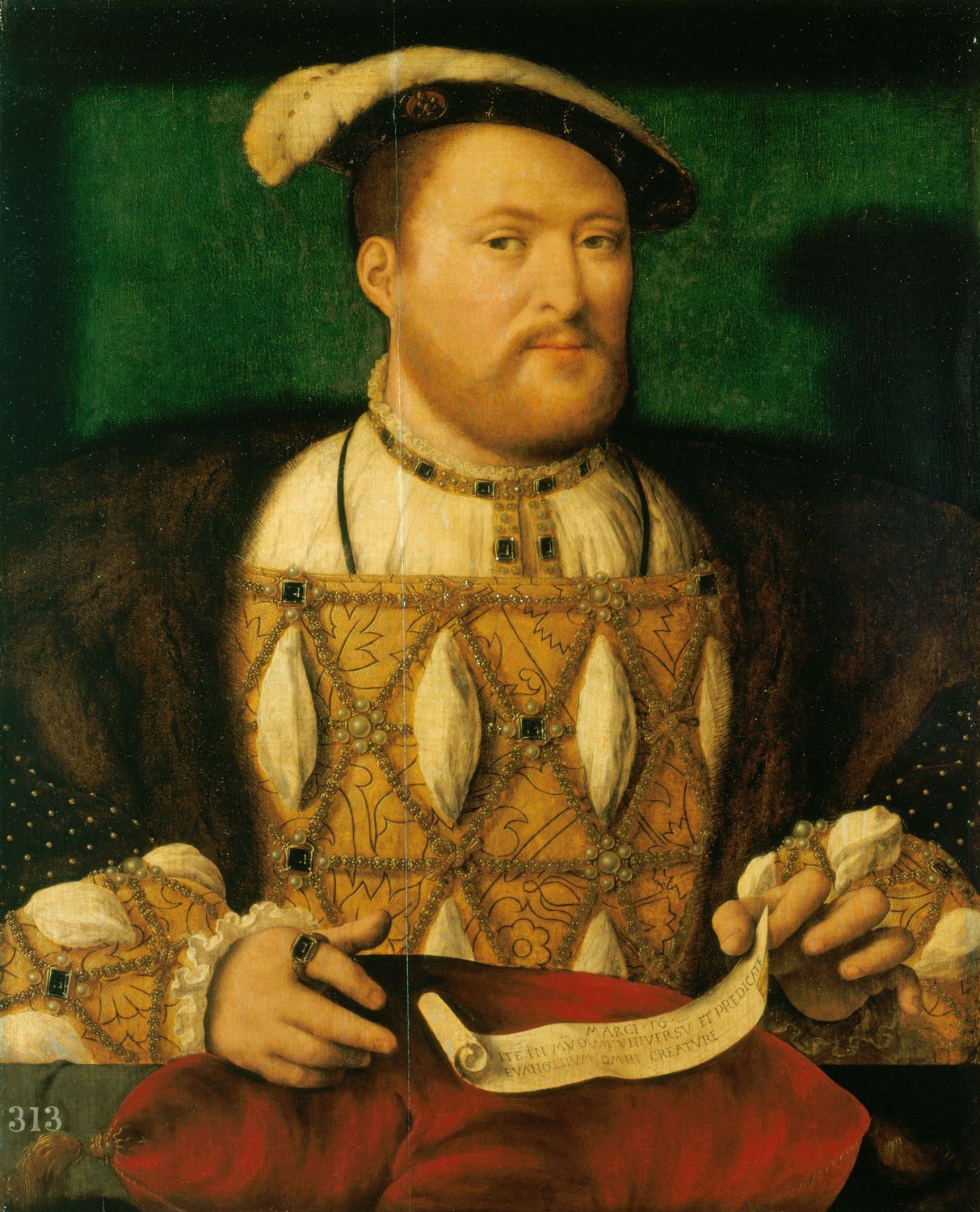While these theories can be fascinating - fun - and even illuminating, at times ... any one of them pronouncing itself final or definite should be taken with many grains of salt. Popular press stories have a way of trumpeting "new findings" as if old findings have never been trumpeted before (it's just like the old "eggs are good for you!" ... "eggs are bad for you!" ... "eggs are good for you again!" quasi-revelations we seem to entertain every few years, about our health).
No historical personage has been much more popular a subject of such inquiries, I would guess, than Henry VIII. He's been diagnosed as narcissistic, syphilitic, paranoid, depressed, and now psychopathic (post by Nancy Bilyeau, with whom I am acquainted via Twitter and of course her blog). The bases on which these pronouncements have been made are the more spectacular features from the landscape of his life: the death of his elder brother Arthur and marriage to his beautiful widow; his early succession and charisma, handsomeness, and successes in his reign; the loss of many children; the gruesome injury and accident on the very field of his vanity, at the joust; Anne ... Jane ... Anna ... Catherine ... Katherine ...
 |
| Henrician sly boots ... the vital king, sporting almost a coy little moue Image: Wikimedia |
Henry's most-visited persona, of course, is the specter of his later years. For twenty years and more, he was the golden boy, the immensely wealthy, healthy, enviable king of a nation he himself helped to bring from a medieval state onto the glittering European stage. He was, though this most often now brings on bouts of ironic scoffing, the Defender of the Faith - and, indeed, Henry himself never recognized his religion as anything but Catholic.
It is an important and vital function of the study of history to question, to posit, to theorize. Even fanciful theories can spark not only the creative imagination, but the will to learn, and may create authors even as they inspire new historians. And yet ... Was Henry a psychopath?
I'm not sure, for one, how much it really matters, beyond the function of any postulation as a fulcrum from which to work puzzles, to consider, to look back at ourselves through the ways in which we look at others. I don't mind the theory that George III had porphyria, nor do I mind the theories now possibly supplanting that one. I didn't mind when porphyria got the brunt of foolish speculating about what "real" vampirism (as if there were such a thing ...) might be/have been. I'm unconcerned with various monarchs' amorous orientations. It's fascinating to me to learn what Otzi ate and how his tools worked, but the elaborate yarn about his possible murder, while interesting in itself, is not necessarily a final page in my mind. Whether Tut was murdered, at that, is in the end an entertainment for me I steadfastly count myself unfit to "decide" ...
Whether King Harry was sociopathic, psychopathic, schizophrenic ... It suffices, for me, to know that he was tormented, and possessed of absolute power. What occurred, did. What might have been makes for terribly intriguing alternate historical fiction. It is useful, but the extent to which I feel it is safe to immerse myself in thinking we know anything remains necessarily constrained. I will never be the expert, even IF I like certain ideas and even will say I subscribe to them.
It doesn't matter whether Henry himself was the victim of illness or the old nature/nurture debate. He had as much responsibility as any of us can have for ourselves, and his power he undeniably misused from time to time. For the luck of being born who he was, his sins are infamous - and, yes, they echo - across half a millennium, with no signs that the reverberations are stilled. One more reason I am glad I never got to be famous. What if my own sins were as egregious - lucky me, they are lesser known.
No comments:
Post a Comment